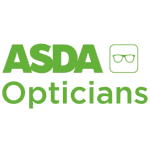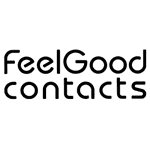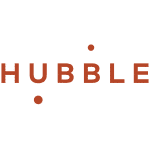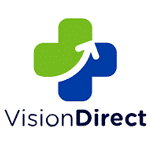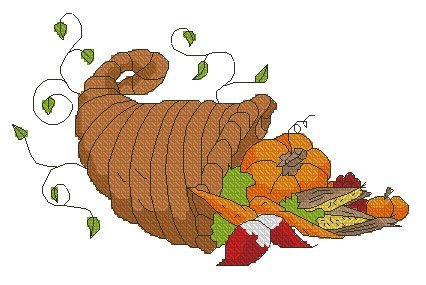Whether you're new to wearing them or you've been doing so for years, there are loads of ways to get cheap contact lenses online. Read on for our top tips.
Credit: Dragana Gordic (woman), Siva Ram Prince (background), Witthawas Suknantee (lines) – Shutterstock
Contact lenses are a great option to have when you're playing sports, wearing sunglasses or just don't fancy wearing your regular specs. But the added convenience comes at a cost, so it's important to do what you can to save money where possible.
Fortunately, it's usually much cheaper to buy contact lenses online – and, arguably, more convenient too.
To help you find the cheapest deals on contact lenses, we've listed the best places to buy them, as well as everything you need to know before making a purchase.
All information below, including the minimum delivery costs, was correct at the time of writing.
Best cheap online contact lenses shops
These are the best places to buy cheap contact lenses online:
-
Asda Opticians
- Cheapest delivery – Free for orders over £25; £2.95 for orders under £25
- Free contact lens assessment? – No
- Free trial? – No
- Multiple brands available? – Yes
- Student discount – None.
-
Contact Lenses UK
- Cheapest delivery – Free for orders over £30; £3 for orders under £30
- Free contact lens assessment? – No
- Free trial? – No
- Multiple brands available? – Yes
- Student discount – None.
-
daysoft
- Cheapest delivery – £2.49 for a one-month pack; £3.49 for three- and six-month packs
- Free contact lens assessment? – No
- Free trial? – No, although we have known daysoft to refund your first pack if you don't like them
- Multiple brands available? – No, daysoft only sells two types of lens: daysoft Classic and daysoft Silk
- Student discount – None.
-
Feel Good Contacts
- Cheapest delivery – £3.75, although free Click & Collect is available from their warehouse in Barnet, North London
- Free contact lens assessment? – No
- Free trial? – No
- Multiple brands available? – Yes
- Student discount – 16% off.
-
Hubble
- Cheapest delivery – £3
- Free contact lens assessment? – No
- Free trial? – No, although you can get your first box for £1
- Multiple brands available? – No, Hubble only sells one type of lens
- Student discount – None.
-
Lenstore
- Cheapest delivery – £2.99
- Free contact lens assessment? – Yes (via Vision Express), although it's only available to customers who have previously purchased prescription lenses from Lenstore (full details)
- Free trial? – Provided if necessary via Vision Express (full details)
- Multiple brands available? – Yes
- Student discount – 16% off (full details).
-
NextdayLenses.com
- Cheapest delivery – £2.99
- Free contact lens assessment? – No
- Free trial? – No
- Multiple brands available? – Yes
- Student discount – None.
-
Vision Direct
- Cheapest delivery – Free for orders of £59 or above; £3.98 for orders below £59
- Free contact lens assessment? – No
- Free trial? – Yes (see current offers)
- Multiple brands available? – Yes
- Student discount – Up to 12%.
-
Vision Express
- Cheapest delivery – Free
- Free contact lens assessment? – Vision Express often runs offers for free eye tests and lens assessments. Click here to see if one is currently live
- Free trial? – Free trials of five pairs are available when you head in-store for a contact lens assessment (full details)
- Multiple brands available? – Yes
- Student discount – 20% off, but only valid in-store.
-
Waldo
- Cheapest delivery – Free (although you will have to pay for the delivery of your free trial lenses)
- Free contact lens assessment? – No
- Free trial? – Free trials of 10 pairs are available, plus delivery costs (full details)
- Multiple brands available? – No, Waldo only sells two types of lens: Waldo Original and Waldo Vitamin
- Student discount – 20% off (full details).
Check out our guide to buying cheap glasses online – loads of the websites we've listed there sell contact lenses too.
How to buy contact lenses online
Here's how to buy cheap contact lenses online:
-
Get a contact lens assessment
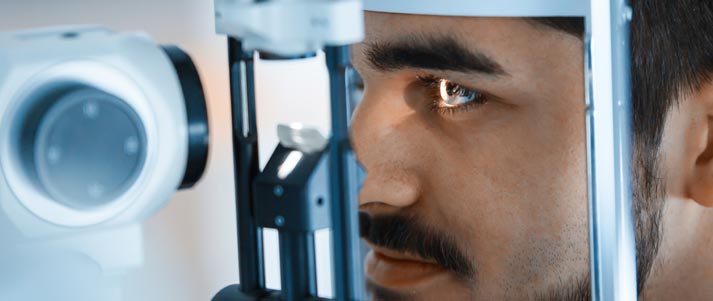
Credit: NDAB Creativity – Shutterstock
Just as when you buy glasses, you'll need a valid prescription (i.e. from within the past two years) when you purchase contact lenses.
However, what you may not know is that even if you have a valid prescription for glasses, you'll need a separate one for contact lenses. As contacts sit directly on your eyes, they'll need to have a slightly different strength lens to your glasses, which sit just off your face (move your glasses further away from your eyes to see how much difference this can make).
What's more, for the best fit, you'll need to know measurements like the base curve and diameter of each eye. Without these, you risk buying and wearing contact lenses that don't sit comfortably on your eye (something we'll explain a little more in the next tip).
Contact lens assessments will typically cost about £20 – £30, however there are ways to get them for free.
For starters, in the list of contact lens websites above, we've noted whether or not each company offers a free appointment. And, if you already get contact lenses from a high street optician (such as Boots), you may get free contact lens assessments included in your plan. It may be worth taking advantage of this freebie before switching to an online retailer.
Either way, it's worth remembering that in the UK, opticians are legally obliged to give you a copy of your contact lens prescription, regardless of whether you plan to buy lenses from them or not. So, if you find a deal for a free assessment (with no strings attached), go for it!
-
Beware that not all contact lenses fit all people
As we mentioned a moment ago, everyone's eyes are slightly different shapes and, as a result, not all contact lenses fit all people.
Most contact lenses can be made to your specifications but, even then, some lenses may only have a limited range of adjustments available.
In the case of sites like daysoft, Hubble and Waldo, which only sell one or two types of their own-brand lenses, you'll often find you're unable to specify any measurements other than the strength of the lens.
But that's not to say that these sites don't make lenses that are right for you. Each company should list the specifications of their products, so it's worth checking these out before dismissing them entirely – it may well be that they happen to make the perfect type of lens for you, in which case, you're golden.
-
Switch to the manufacturer's brand
Incredibly, it's usually cheaper to buy the manufacturer's brand of contact lenses than it is to buy an optician's own-brand version. It goes against everything we know about saving money, but it's true!
Although Specsavers, Boots and Vision Express all offer their own contact lenses (which are still pretty cheap in the grand scheme of things), most of them are made by the same few companies – most of whom sell their products for less with their own branding on them.
Helpfully, on this page, Vision Direct has listed every type of contact lens sold by the big three high street opticians, along with the cheaper equivalent product. They've also suggested alternatives for daysoft, Hubble and Waldo, although it's worth noting that, in these cases, the suggestions are just very close alternatives, rather than exact equivalents.
Suffer from allergies? We've also got tips on how to get cheap hayfever medication – once again with the exact same product available in different packaging for a lower price.
-
Get a free contact lens trial

Credit: Andrey_Popov – Shutterstock
Given how sensitive our eyes are, trying contact lenses can often involve a bit of trial and error – especially if you've not worn them before. You may find that a particular type of lens dries your eyes out a little too much, you may realise that the prescription is slightly off, or you may just decide that contact lenses aren't for you after all.
Fortunately, lots of retailers offer free contact lens trials, including some of the websites listed above.
Some high street opticians, including Boots and Specsavers, also offer free trials – but these usually come as part of a contact lens assessment, which you may have to pay for if no offers are currently running.
Nonetheless, professional opticians may be able to recommend a specific type of lens for you, so the free trial could end up being worth the extra cost of a contact lens assessment (which, as we outlined above, you may need anyway).
-
Compare contact lens websites
Our list of contact lens websites features all the major players and the main points of comparison between them.
But there are other websites out there, and additional factors to consider too – including whether or not the shop actually has the lenses you're after. So, here's a quick checklist of things to bear in mind when you're comparing online contact lens retailers:
- The total cost of the contact lenses and delivery
- If the website has any voucher codes, first-order discounts, or is listed on cashback sites
- If discounts are available for buying in bulk
- Whether or not a free trial of lenses is available.
-
Buy in bulk for a discount
As with many things in life, buying contact lenses in larger quantities tends to cost less per unit than purchasing the same amount in smaller quantities.
The exact discount will vary depending on the lenses and the company you're buying from but, for example, buying six months' worth of lenses at once will often be cheaper than buying one month's worth, six times (if not just because you're only paying for one delivery).
However, buying in bulk is probably only a wise idea if you're confident that you've found the right contact lenses for your eyes. If you've not worn a particular lens before (or any lenses at all), it's more sensible to buy a small quantity and try them out.
-
Decide whether you need daily or monthly contact lenses

Credit: lusia83 – Shutterstock
If you wear contacts most days, it tends to be cheaper to wear monthly lenses as opposed to dailies – even after you've taken into account the cost of lens solution (which may come included). There's also the option of bi-weekly lenses (also known as 'two-weekly disposables') which, as the name suggests, you switch out every two weeks.
As well as being cheaper for regular wearers, it's generally thought that monthly or bi-weekly lenses are more eco-friendly too, as they require fewer packets.
That said, it is possible to recycle your contact lenses and blister packs – although you will have to drop your waste off at a participating optician (the full list is here). Perfect if you're looking to reduce your carbon footprint!
Just remember that, as monthly and bi-weekly lenses are made from a slightly different material and can affect your eyes in ways that dailies don't, it's recommended that you visit an optician to see if they'd be suitable for you, and to have them properly fitted.
Our guide to cheap healthcare and dentistry has tips for saving money on everything that's not quite covered by the NHS – including eye tests…



